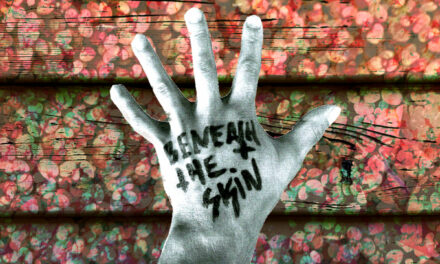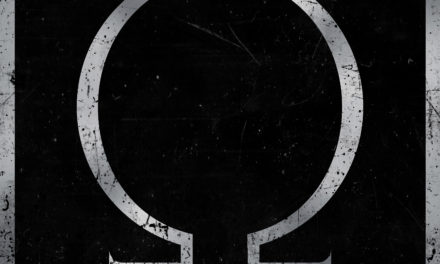
Them Are Us Too
Amends
Dais Records
It is impossible to listen to, let alone write about, the new Them Are Us Too record without taking the tragic passing of Cash Askew into account. Plenty of records have gone on to gain mythic status due to their proximity to the death of one of their core contributors, but Amends itself is a direct response to such a loss. Built upon a foundation of demos and songwriting done by Kennedy Ashlyn and Cash Askew before the death of the latter in the Ghost Ship fire, Amends represents a collaboration between Ashlyn and Cash’s stepfather (Sunny Haire) and partner (Anya Dross), along with Inhalt’s Matia Somovich to bring those first steps to full realization. That the record is produced by regular collaborator Joshua Eustis, who himself lost a creative partner far too early, only adds to Amends‘s pathos. But Them Are Us Too were never strangers to grief, nor to the paradoxes inherent in inaugurating temporary beauty by virtue of its transience, and so as difficult as it might be to listen to, Amends is as much an organic continuation of Askew and Ashlyn’s partnership as it is a monument to it.
Musically, Amends at times breaks from Remain in ways which are somewhat unexpected but not wholly incommensurate with the modes Askew and Ashlyn had already set forth in their extant work. The desperate darkwave gallop of “Floor” speaks to TAUT’s all-embracing approach to the 4AD catalog, while “No One” switches back and forth between a contemporary ‘Jan Hammer revisited through synthwave’ pulse and Disintegration-style guitar lines.
Other pieces feel like the realisation of the dreamy otherspace TAUT strove to create and inhabit with their music. “Angelene”, initially released on a benefit compilation shortly after the Ghost Ship fire, gains regal majesty as an opening track here, underscoring Banshees and Cocteaus comparisons with the richness of Ashlyn’s vocals. Later, “Could Deepen” becomes a tour de force exhibition for those vocals, with Ashlyn suddenly undercutting her always impressive range and control by leaning into words with a pained sting hitherto unheard. The song was written (and even released in a side session) before Cash’s passing, but one can’t hear Ashlyn’s expressions of anguish – “I’ve been told the melody lingers on / How can I?” – and not be shaken to the core by their import.
Between these similarities and differences, it’s impossible to gauge whether Amends is approximate to the sophomore record Them Are Us Too would have made had things gone differently. On one hand, obviously it’s a record shot through with grief and remembrance and love and pain. On the other, the harmony between Ashlyn’s vocals and Askew’s silky waves of guitar tremolo which marked their work together still defines Amends. Ultimately, the question of which materials or passages on Amends were recorded or written by Askew herself and which by her family and loved ones is, to my mind, academic and wholly irrelevant to the musical and emotional weight of the record. Cash Askew doesn’t haunt Amends: she illuminates it. Them Are Us Too believed their music to be a radical response to a world which would deny, silence, and snuff out femme and trans voices and lives. Them Are Us Too believed that their very existence, their sheer revelry in their own improbable endurance, was itself a victory, an exultance. With Amends that spirit rings out. Triumphant, defiant, eternal.





